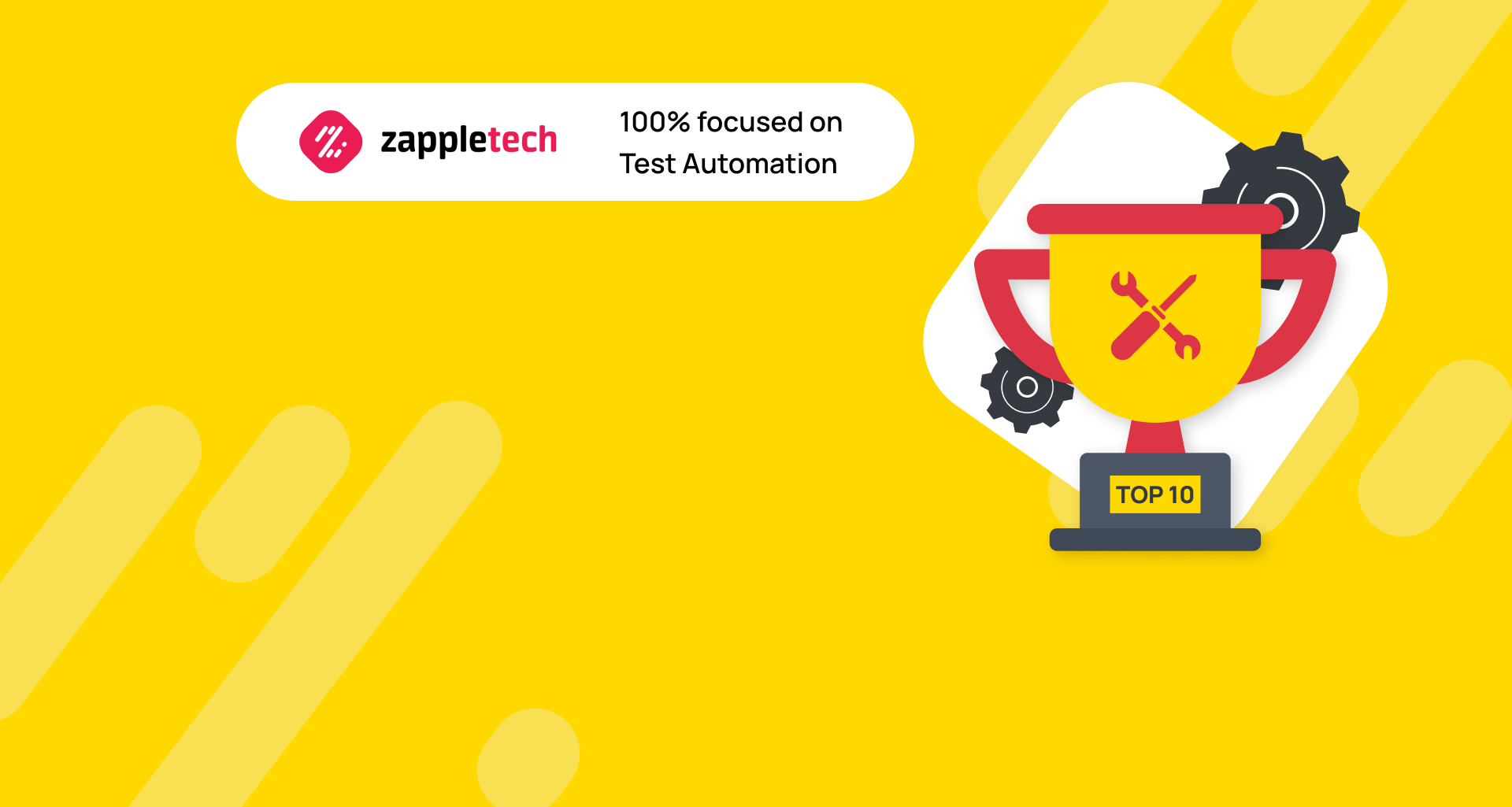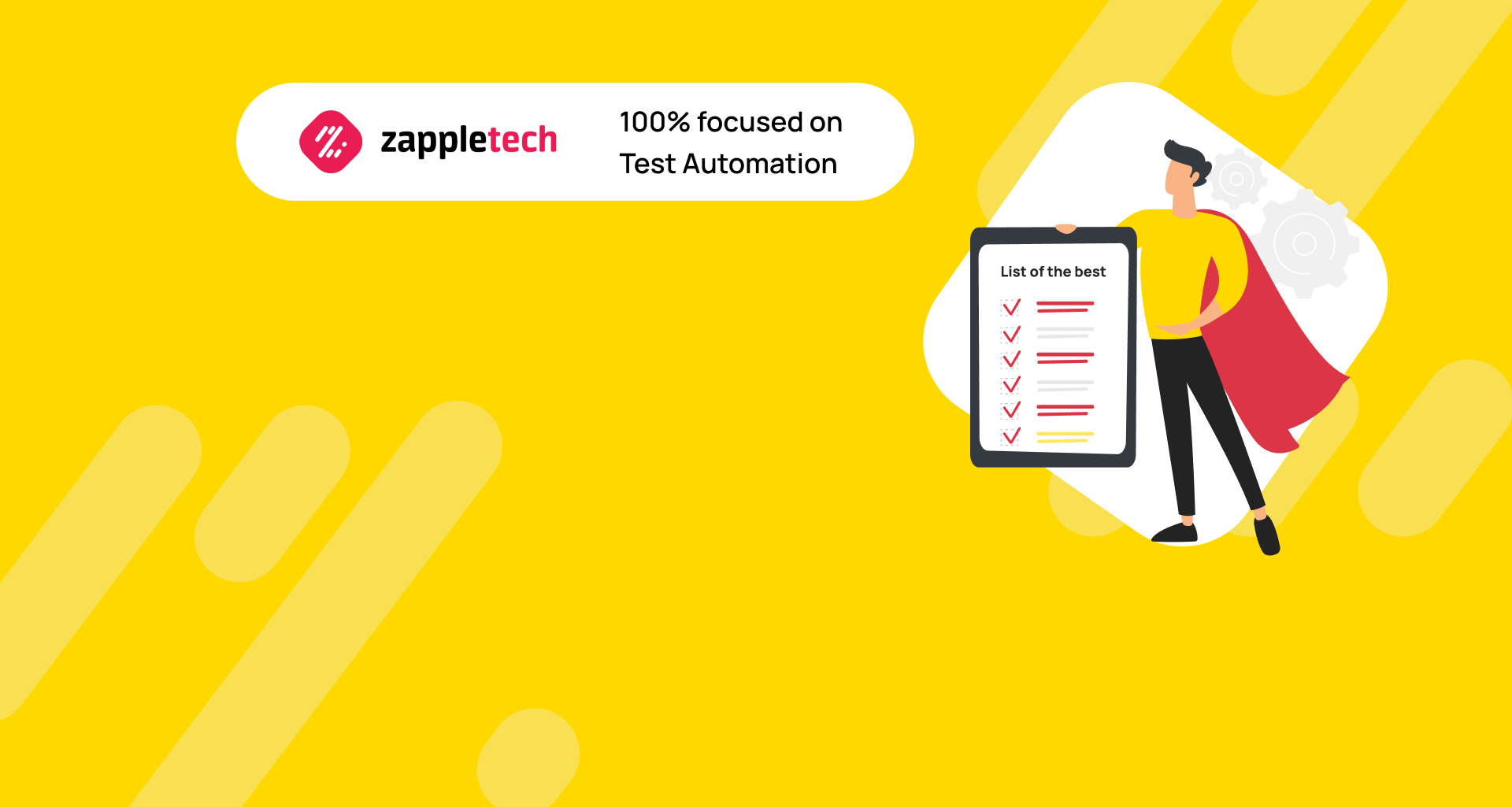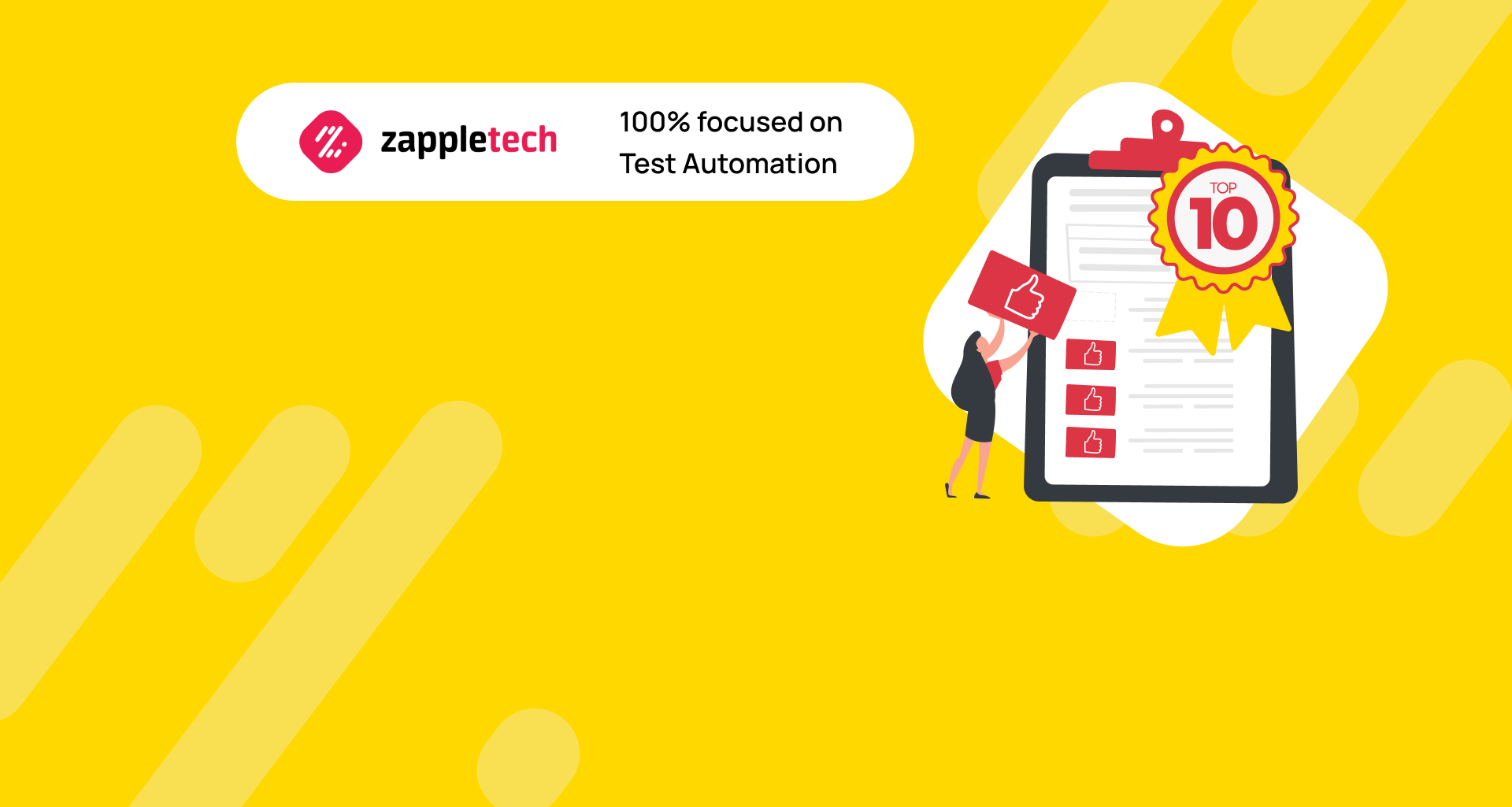The growing demand for software automation testing tools and software-automated testing tools is not just a trend but a necessity for modern businesses aiming to stay competitive. This surge is largely attributed to several factors, including the rise of Agile and DevOps methodologies that emphasize continuous integration and continuous delivery (CI/CD). These methodologies require frequent and rapid testing cycles, which manual testing simply cannot keep up with. As companies push for faster release cycles, automated testing becomes essential in ensuring that new updates and features do not compromise the integrity and performance of the software.
Moreover, the complexity of software applications has increased, encompassing a range of environments, including mobile, web, and cloud. This has heightened the need for robust test automation solutions that can handle diverse scenarios and provide comprehensive test coverage. Software automation testing tools and software automated testing tools are crucial in this context, as they can execute thousands of test cases quickly and accurately, helping businesses to detect and address issues early in the development cycle.
The financial benefits of using these tools are also significant. Companies can cut costs and allocate their workforce to more strategic tasks by reducing the time and resources spent on manual testing. Automated testing tools offer not just speed and accuracy but also the ability to perform repetitive tasks consistently, which is invaluable in maintaining the quality of software over time. Additionally, the insights gained from these tools, such as detailed reports and analytics, empower businesses to make data-driven decisions that further enhance product quality.
Before choosing a testing tool, clearly define your project requirements, such as the type of testing (functional, performance, automation) and the technologies used. Pick a tool that aligns best with these needs to maximize efficiency.Mikhail BodnarchukCDO, ZappleTech Inc.
As the market continues to grow, a variety of software automation testing tools and software automated testing tools are emerging, each offering unique features tailored to specific testing needs—ranging from functional testing to performance, security, and usability testing. These tools are designed to integrate seamlessly with other development and project management tools, providing a streamlined workflow that supports the entire software development lifecycle.
For businesses aiming to improve their testing processes, it is crucial to select tools that not only meet their technical requirements but also align with their overall strategic goals. By investing in the right test automation tools, companies can achieve higher quality releases, reduce time to market, and ultimately, deliver better products that meet customer expectations.
Table of Contents
Leaders among software testing tools: what to choose and why?
1. Selenium
This tool is known to all specialists who are somehow connected with QA. Most often, they choose Selenium to automate tests of Java-based web apps. It combines a set of programs with open source code available for viewing and making changes (as in most other software):
- IDE. A plugin for Firefox allows for recording, saving, editing, and playing back user activities. It generates code for RC and WebDriver versions.
- WebDriver. A library with excellent features for managing browsers. It includes drivers for browsers and client libraries. Unlike the IDE, here you can work with programming languages.
- RC (1.0). This library used to be the main project before WebDriver (2.0) was created. These tools are similar, but RC loses out in terms of architectural simplicity, speed, and functionality.
- Grid. A cluster of multiple servers that help manage browsers on different devices. A distributed network allows parallel testing when it is vital to meet deadlines.
- Server. A software that offers convenient conditions for working with the browser remotely (over the network). Command sets for new (WebDriver) and legacy (RC) versions are supported.
As you can see, it is a valuable solution for testers. Its capabilities are commonly used in large corporations, including Google. Why does it attract professionals? Based on our experience, we can note 3 positive points: support for popular languages, comfortable work in most popular browsers and operating systems (including mobile ones), and quick integration with other tools.
2. WebdriverIO
WebdriverIO is a robust option among software automation testing tools, providing an environment that allows you to create reliable, stable test suites tailored for modern mobile, web, and desktop applications. Known for its ease of configuration and quick setup, WebdriverIO is highly valued by experts for its compatibility with JavaScript, making it accessible for developers familiar with this widely used language. Its multifunctionality further enhances its appeal among various software automated testing tools.
WebdriverIO stands out for its ability to integrate auxiliary functions, complex sets, and combinations of commands, significantly expanding the tool’s capabilities. This flexibility ensures that it can be adapted to meet current testing requirements, aided by numerous built-in and community plugins that facilitate seamless integration and customization. The platform’s ongoing development, driven by community input, ensures it evolves to align with user needs and industry standards, making it a continuously reliable choice in the ever-evolving landscape of software automation testing tools.
3. Appium
4. Cypress
Cypress is a relatively young but rapidly growing player among software automation testing tools. It introduces innovative concepts and solutions in the realm of automation and testing, setting it apart from more traditional options. One of its standout features is its ability to run directly inside the browser, which allows it to capture all interactions and manipulations with elements on the page. This unique approach minimizes the risk of flaky or floating tests, a common issue faced by other software automated testing tools.
Its advantages include built-in tools based on Mocha, Chai, and Sinon; automatic waiting mechanism; the ability to move several steps back; detailed documentation with many examples. Cypress became popular immediately after entering the market, but recently it has a competitor that overcomes its tradeoffs.
The tool’s comprehensive and detailed documentation, complete with numerous examples, helps users quickly get up to speed and make the most of its capabilities. This has contributed to Cypress’s rapid rise in popularity soon after its market debut. However, despite its strengths, Cypress has encountered emerging competitors that are starting to address its limitations, such as its browser-only testing capability and limited support for multiple browsers. Nevertheless, Cypress remains a strong contender in the software automated testing tools landscape, particularly for teams seeking a modern, browser-focused approach to testing.
Ensure that the testing tool integrates smoothly with your existing CI/CD pipeline, development environment, and other tools. Seamless integration helps streamline workflows and reduces the time spent on setup and maintenance.Sergey AlmyashevCOO, ZappleTech Inc.
5. Playwright
Playwright is a robust software automation testing tool developed by the same team behind Puppeteer. It is often compared to Cypress, positioning itself as a strong competitor due to its advanced features and the absence of some common limitations found in other testing tools. Playwright’s primary capabilities include verifying the operability of elements before executing actions, simulating incognito mode, supporting multi-page scripts, and modeling permissions. Some of its standout features are the ability to write tests using CodeGen, generate PDFs, and integrate with Allure for enhanced reporting.
Playwright is compatible with leading browsers like Chrome, Edge, Safari, and Firefox, providing extensive cross-browser testing capabilities. It supports a wide range of operating systems, including Windows, Linux, and macOS, and integrates seamlessly with major CI/CD servers, making it an ideal choice for continuous testing environments. This software automated testing tool broadens the horizons for QA specialists by being compatible with several powerful programming languages, such as Java, Python, .NET, and C#. Known for its high accuracy and speed, Playwright excels in handling complex applications, making it a preferred choice for modern test automation projects. With its comprehensive features and flexibility, Playwright is poised to maintain its status as a leading solution in cross-browser test automation for years to come.
6. Selenide
You probably haven’t forgotten about WebDriver yet. That’s good because we will discuss it in this paragraph too. Selenide is one of the popular software automation testing tools that closely relates to WebDriver, making it a key player in our list. It can be described as a wrapper around the main Selenium product, which significantly simplifies and accelerates its use. This allows testers to focus more on the logic of their tests rather than dealing with routine browser configurations.
Selenide is an ideal choice when introducing software automated testing tools to a product that has never been tested in automatic mode. It boosts the testing speed by 2-3 times by resolving common issues associated with Ajax and Selenium. However, it is important to note that Selenide is not suitable for all projects, as it is primarily designed for Java environments. Despite this, its capabilities make it a valuable asset in the toolbox of software automation testing tools, especially for teams looking to streamline their testing processes.
7. Espresso
8. JUnit
JUnit is a widely used software automation testing tool for unit testing of Java-based software applications. As a member of the xUnit family of frameworks, JUnit plays a crucial role in Test-Driven Development (TDD), where tests are written before the actual code. It supports various programming languages beyond Java, including PHP, C#, C++, Python, Perl, Fortran, Delphi, Flex, JavaScript, and COS, making it a versatile software automated testing tool.
JUnit operates on the principle of “first tests, then code.” This means that developers start by defining the expected behavior and outcomes of their software. Tests are created to verify these expectations before the actual code is implemented. This method ensures that the resulting code meets the required specifications from the start, enhancing code stability and efficiency. By reducing debugging time and increasing code reliability, JUnit significantly boosts the overall productivity of developers, making it an essential tool in the suite of software automation testing tools.
9. TestCafe
When you need to test a complex business application, it makes sense to turn to TestCafe. It is friendly to different browsers (desktop, headless) and platforms, integrates with top CI/CD solutions, and is suitable for complex scenarios and any technology. Running tests in multiple browsers saves a lot of time and reduces the cost of computing resources.
One of the standout features of TestCafe is its ability to run tests in multiple browsers simultaneously, which not only saves significant time but also reduces the cost of computing resources. When issues arise, the built-in debug mode allows testers to quickly pinpoint the source of the problem, thereby minimizing downtime and accelerating the resolution process. Unlike other software automated testing tools, TestCafe simplifies the end-to-end testing process by eliminating the need for extensive coding and maintenance, thanks to its built-in waiting mechanism that ensures stability and reduces test flakiness.
TestCafe is ideal for both beginners and seasoned QAs looking to optimize their testing efforts. It offers user-friendly interfaces and robust functionality that cater to a wide range of skill levels, ensuring that all users can efficiently improve the performance and reliability of their checks. Whether you’re just starting out or an experienced QA professional, TestCafe provides the tools needed to enhance your testing capabilities and deliver high-quality software products.
10. Robot Framework
Here is a keyword-driven framework aimed at test automation. Written with Python, it is widely known among ATDD specialists. You can use ready-made keywords (embedded in the framework) to create tests. It is enough to download the necessary libraries to get started.
The framework’s features include web and mobile support, tags for tests (any information for identification), automatic reporting without additional commands, default Gherkin syntax, parallel launch, and more. In addition, it requires less programming knowledge to use. Such a low entry threshold attracts beginners worldwide.
In the face of strict deadlines and requirements for software, it is vital to take a responsible approach to the choice of testing tools. Select reliable solutions that have been proven over the years and approved by millions of automation professionals. We follow this principle in our work, which allows us to avoid unpleasant surprises and guarantee reliable results for our clients.
Opt for a tool that offers a good balance of advanced features and ease of use. A user-friendly interface and robust support can significantly reduce the learning curve, making it easier for your team to adopt and utilize the tool effectively.Mykhailo PoliarushCEO, ZappleTech Inc.
Bottom line
In conclusion, choosing the right software testing tool is crucial for ensuring the quality and reliability of your applications. The top 10 software testing tools offer diverse features that cater to various testing needs, from functional and automation testing to performance and security testing.
Whether you’re a beginner or an experienced tester, these tools provide the capabilities to streamline your testing processes, improve efficiency, and enhance overall product quality. By selecting a tool that aligns with your specific requirements, you can significantly boost your testing efforts and deliver robust, high-performing software.







